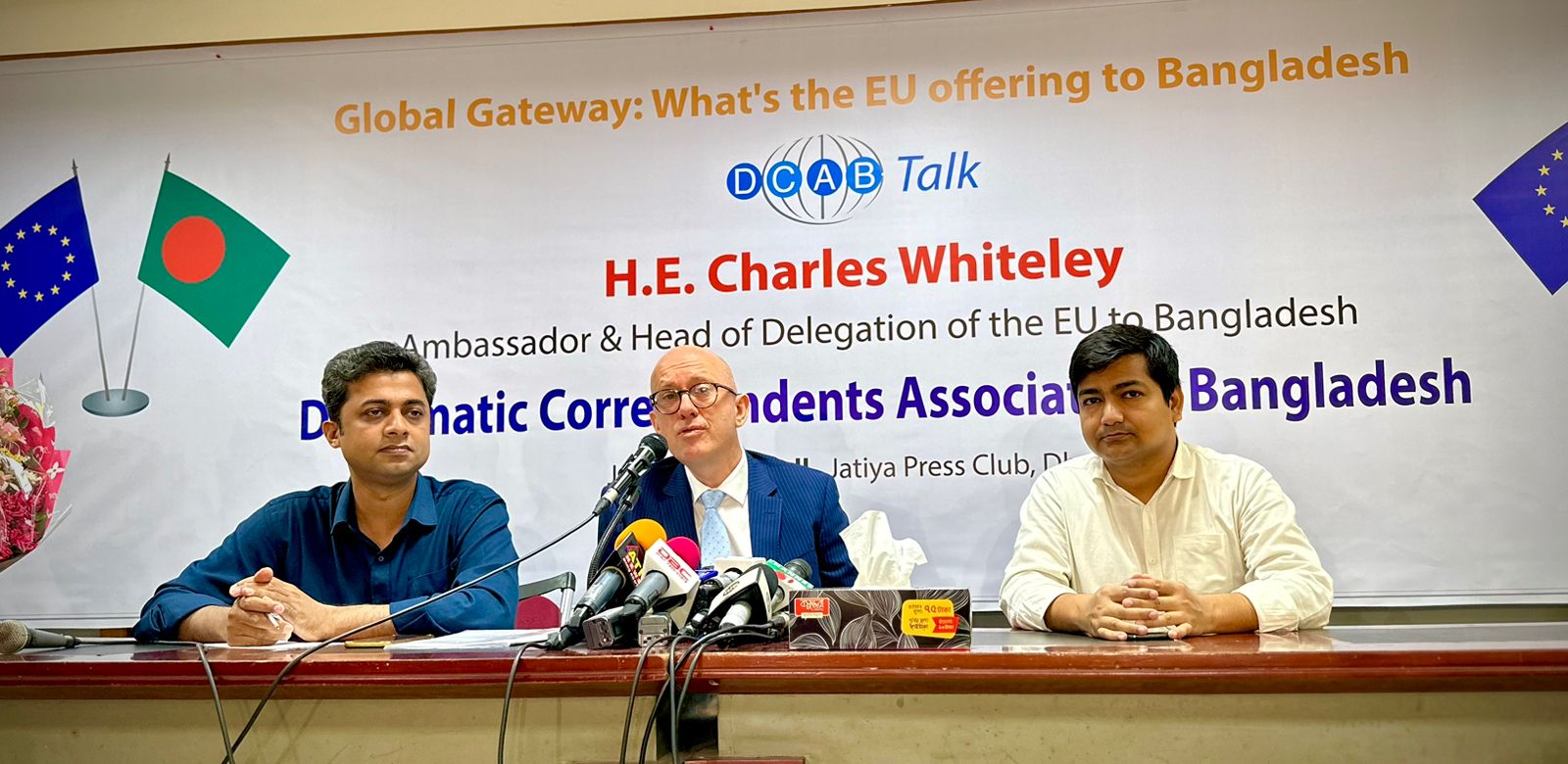
DHAKA, June 10, 2024 (BSS) - Ambassador and Head of Delegation of the European Union (EU) to Bangladesh Charles Whiteley today said many countries want to do business with Bangladesh as Dhaka takes regulations “seriously” and the country is “good risk” for loan.
“Bangladesh is in a position to choose because many countries want to do business with Bangladesh. It’s plain and simple,” he said at DCAB Talk, its flagship event of the Diplomatic Correspondent Association of Bangladesh (DCAB) at the Jatiya Press c
Club here.
The envoy said that the European Investment Bank wants to do more business in Bangladesh as the country has a relatively healthy debt to GDP ratio. “You've never defaulted on the debt,” he added.
DCAB President Nurul Islam Hasib and General Secretary Ashiqur Rahman Apu conducted the program.
Whiteley said trade is key bedrock of the Bangladesh-EU relations and that bedrock is growing.
The EU ambassador highly appreciated Bangladesh’s approach to new regulations and said Bangladesh has made very strong progress on anticipating its transition to GSP plus.
“I'm very happy with the psychological approach of Bangladesh. They take these things seriously. And they look at it at a very early stage. So it's very impressive,” he said.
He said Bangladesh has a vision for its own future and it is articulated through many plans.
“We don't lecture countries like Bangladesh; instead, we work in genuine partnership with them, recognizing their status as an emerging power,” he said.
The ambassador spoke on the EU, and Bangladesh partnership and the new initiative of the “Global Gateway” through which Brussels is offering “quality” for infrastructure development and technology transfer.
He, however, said climate change is the biggest challenge for Bangladesh as the country is graduating from the LDC.
The EU envoy said he wants to see more collaboration in the future, in particular, on security and defense.
The Ambassador said that Brussels regulates social media sites such as Facebook to stop hate speech and incitement of violence.
“We've regulated in Europe through our Digital Security and Services Act, which puts an onus on companies like Facebook, for example, and Meta and so on,” he said, adding that they are also discussing taking further steps.